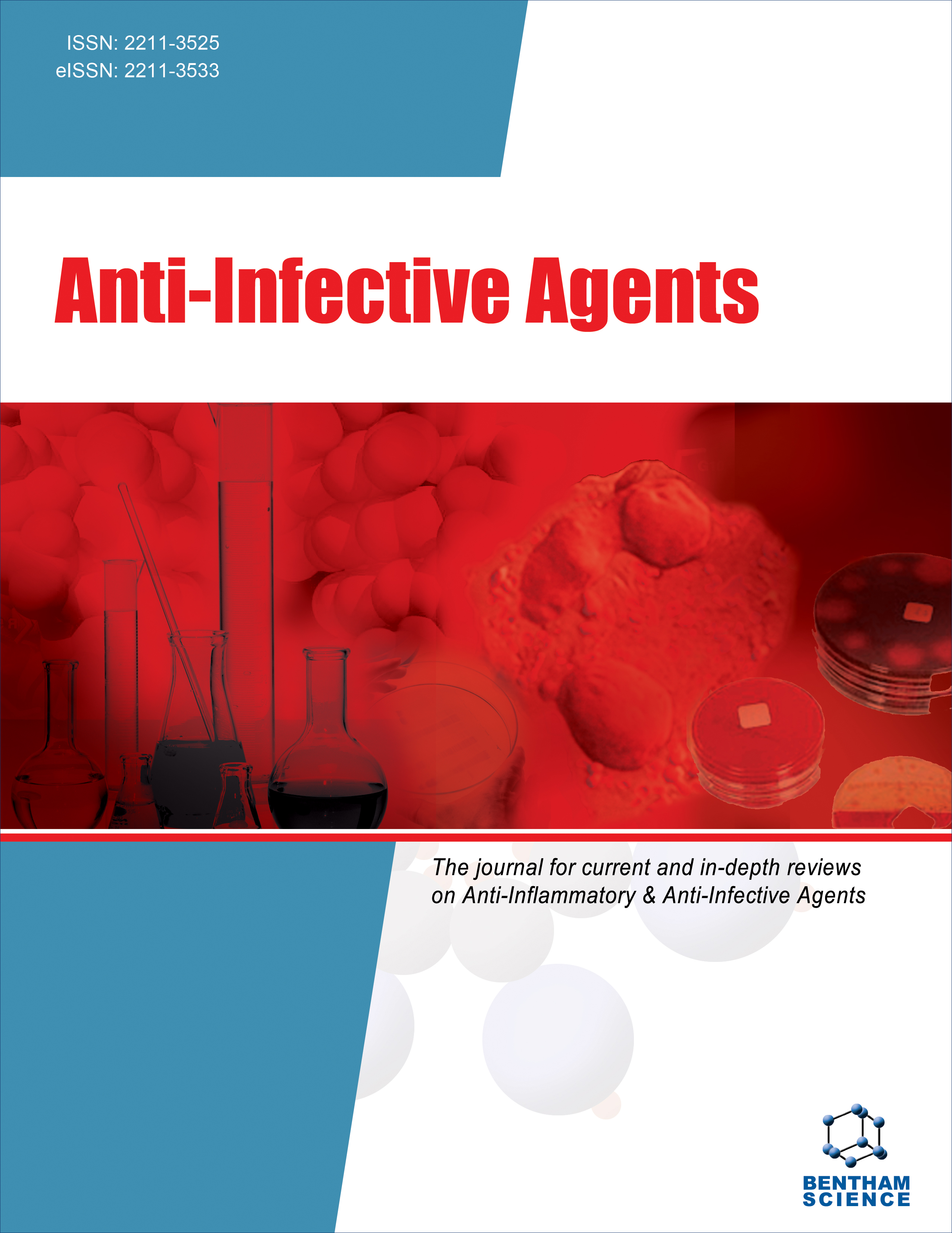-
s Polyaminosteroid Analogues as Potent Antibacterial Agents Against Mupirocin-Resistant Staphylococcus aureus Strains
- Source: Anti-Infective Agents, Volume 18, Issue 3, Sep 2020, p. 239 - 244
-
- 01 Sep 2020
Abstract
Background: Nasal carriage of Staphylococcus aureus (S. aureus) constitutes an important risk factor for subsequent infections in some types of patient populations. Decolonization of carriers using intranasal mupirocin is widely used as a preventive measure. However, resistance to this agent has been rising and causing failure in the decolonization, highlighting the need for new alternatives. Objective: The objective of our study was to evaluate the antibacterial activity of polyaminosteroid analogues (squalamine and BSQ-1) against S. aureus strains with different levels of mupirocin-resistance. Methods: Using the broth microdilution method, we evaluated the minimum inhibitory concentration (MIC) of these molecules against S. aureus clinical strains including mupirocin-resistant strains. The emergence of resistance was evaluated by long-term and repeated exposure of a susceptible S. aureus strain to subinhibitory concentrations of squalamine, BSQ-1 or mupirocin. Results: We found that squalamine and BSQ-1 are active against mupirocin-susceptible and -resistant clinical isolates with MIC values of 3.125 μg/mL. Additionally, repeated exposure of a S. aureus strain to squalamine and BSQ-1 did not lead to the emergence of resistant bacteria, contrarily to mupirocin. Conclusion: Our study suggests that these molecules constitute promising new alternatives to mupirocin for nasal decolonization and prevention of endogenous infections.


